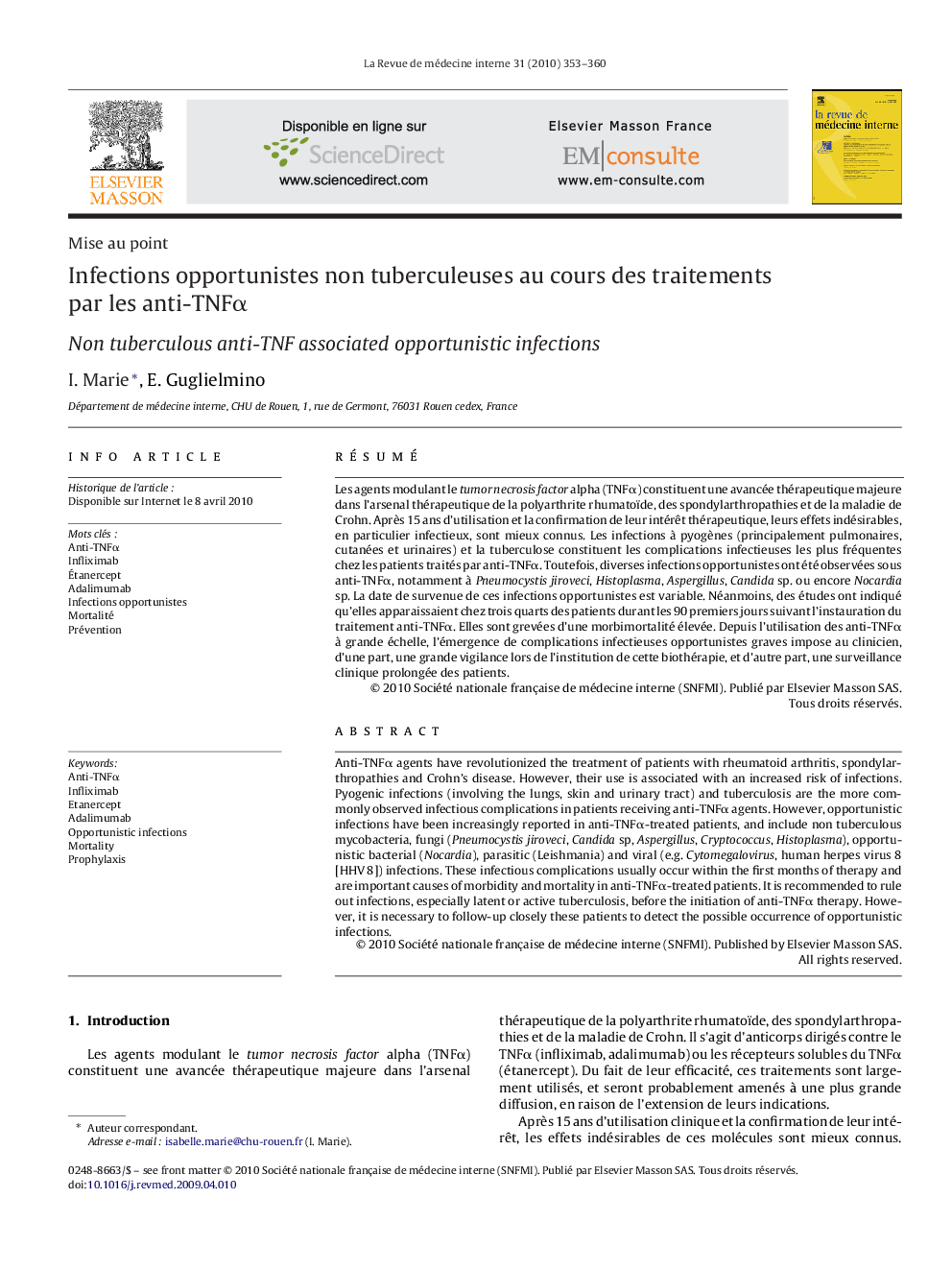| کد مقاله | کد نشریه | سال انتشار | مقاله انگلیسی | نسخه تمام متن |
|---|---|---|---|---|
| 3022915 | 1182424 | 2010 | 8 صفحه PDF | دانلود رایگان |

RésuméLes agents modulant le tumor necrosis factor alpha (TNFα) constituent une avancée thérapeutique majeure dans l’arsenal thérapeutique de la polyarthrite rhumatoïde, des spondylarthropathies et de la maladie de Crohn. Après 15 ans d’utilisation et la confirmation de leur intérêt thérapeutique, leurs effets indésirables, en particulier infectieux, sont mieux connus. Les infections à pyogènes (principalement pulmonaires, cutanées et urinaires) et la tuberculose constituent les complications infectieuses les plus fréquentes chez les patients traités par anti-TNFα. Toutefois, diverses infections opportunistes ont été observées sous anti-TNFα, notamment à Pneumocystis jiroveci, Histoplasma, Aspergillus, Candida sp. ou encore Nocardia sp. La date de survenue de ces infections opportunistes est variable. Néanmoins, des études ont indiqué qu’elles apparaissaient chez trois quarts des patients durant les 90 premiers jours suivant l’instauration du traitement anti-TNFα. Elles sont grevées d’une morbimortalité élevée. Depuis l’utilisation des anti-TNFα à grande échelle, l’émergence de complications infectieuses opportunistes graves impose au clinicien, d’une part, une grande vigilance lors de l’institution de cette biothérapie, et d’autre part, une surveillance clinique prolongée des patients.
Anti-TNFα agents have revolutionized the treatment of patients with rheumatoid arthritis, spondylarthropathies and Crohn's disease. However, their use is associated with an increased risk of infections. Pyogenic infections (involving the lungs, skin and urinary tract) and tuberculosis are the more commonly observed infectious complications in patients receiving anti-TNFα agents. However, opportunistic infections have been increasingly reported in anti-TNFα-treated patients, and include non tuberculous mycobacteria, fungi (Pneumocystis jiroveci, Candida sp, Aspergillus, Cryptococcus, Histoplasma), opportunistic bacterial (Nocardia), parasitic (Leishmania) and viral (e.g. Cytomegalovirus, human herpes virus 8 [HHV 8]) infections. These infectious complications usually occur within the first months of therapy and are important causes of morbidity and mortality in anti-TNFα-treated patients. It is recommended to rule out infections, especially latent or active tuberculosis, before the initiation of anti-TNFα therapy. However, it is necessary to follow-up closely these patients to detect the possible occurrence of opportunistic infections.
Journal: La Revue de Médecine Interne - Volume 31, Issue 5, May 2010, Pages 353–360